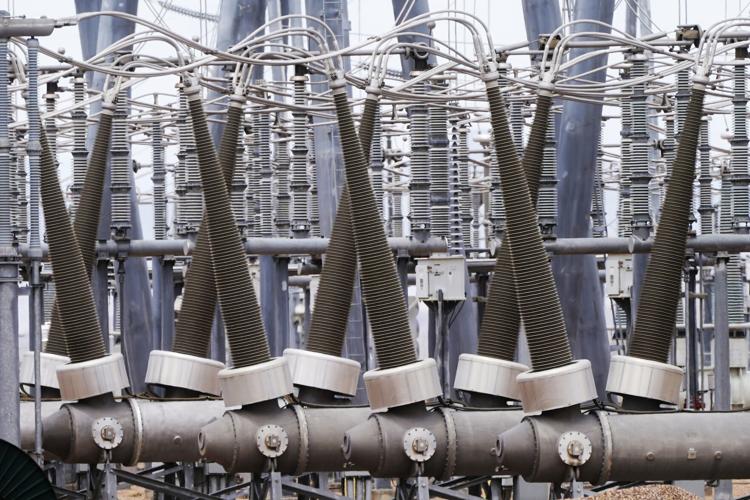Coal-fired electricity is transmitted through a substation at Intermountain Power Plant on Wednesday, June 22, 2022, in Delta, Utah. In three years, the power lines will start being used to transport power generated with hydrogen to consumers in California and elsewhere. (AP Photo/Rick Bowmer)
SALT LAKE CITY – Gov. Spencer Cox has signed Senate Bill 224 (Energy Independence Amendments) into law, a proposal that Sen. Chris Wilson (R-Logan) calls “a monumental step toward a secure energy future.”
With little fanfare, that signing took place Mar. 13, along with 141 other bills passed in the recently concluded general session of the Utah Legislature.
“Having reliable, affordable and sustainable energy sources is critical to maintaining Utah’s quality of life,” according to Wilson. “That’s why the Legislature is working to make the state energy-independent.”
As proposed by Wilson’s colleague Sen. Scott Sandall (R-Tremonton), SB 224 provides the state’s Public Service Commission (PSC) with clear guidelines for deciding whether or not to approve an electrical utility’s proposal for new electrical capacity to ensure they best align with the public interests.
Wilson explains that SB 224 also allows the PSC to sell excess energy to other states and make that commission accountable to the Legislature for its decisions.
“This bill helps ensure that we continue to have the nation’s second-lowest electricity rates, meet the state’s energy needs and keep the lights on,” Wilson adds.
In his comment, Wilson was referring to cost estimates for Utah’s electricity in 2023. As previously reported on Mar. 12, a recent cost projection by the power analysts at Texas Electricity Ratings — based on a state-by-state comparison of data from the Environmental Investigation Agency – predicted that Utah would have the lowest energy costs in the nation in 2024.
Those energy savings didn’t come about by some lucky accident, according to Sandall, but rather by careful planning and husbanding of resources.
The fine print in SB 224 also clears the way for the PSC to continue to operate two coal-fired power plants in Emory County while surrounding states begin to cut their use of coal.
Utah officials are at odds with the Biden administration over the Environmental Protection Agency’s recently announced “good neighbor” policy, which aims to cut down on cross-state smog pollution from power plants and other industrial sources.
That plan would require 23 states – including Utah – to take steps to reduce emissions of nitrogen oxide that form ground-level ozone – better known as smog — that make it difficult for downwind states to meet standards set for ozone by the 2015 National Ambient Air Quality Act.
Green New Deal advocates in Utah and throughout the nation are betting that advances in battery storage capacity will eventually make renewable energy sources like wind and solar power more reliable and dispatchable in the future.
But the Republican majority in the Utah Legislature isn’t buying into those pie-in-the-sky promises and SB 224 was passed by the House and Senate by votes largely along party lines.
For their part, Sandall and legislative allies are confident that when surrounding states that put of their faith in wind, solar and battery storage run short of power in emergencies they will queue up to purchase Utah electricity at a premium prices.
“We can’t just rely on wind and solar to hold us over,” Sandall said, “until promising technologies like nuclear or geothermal reach operational and economic maturity.
“We also can’t allow other states to continue to push their policies onto Utah while they undermine reliability and cost stability.”
To date, Cox has signed 326 pieces of legislation without issuing a single veto. He has until Mar. 20 to sign or veto the remaining more than 260 bills passed by the Legislature.

